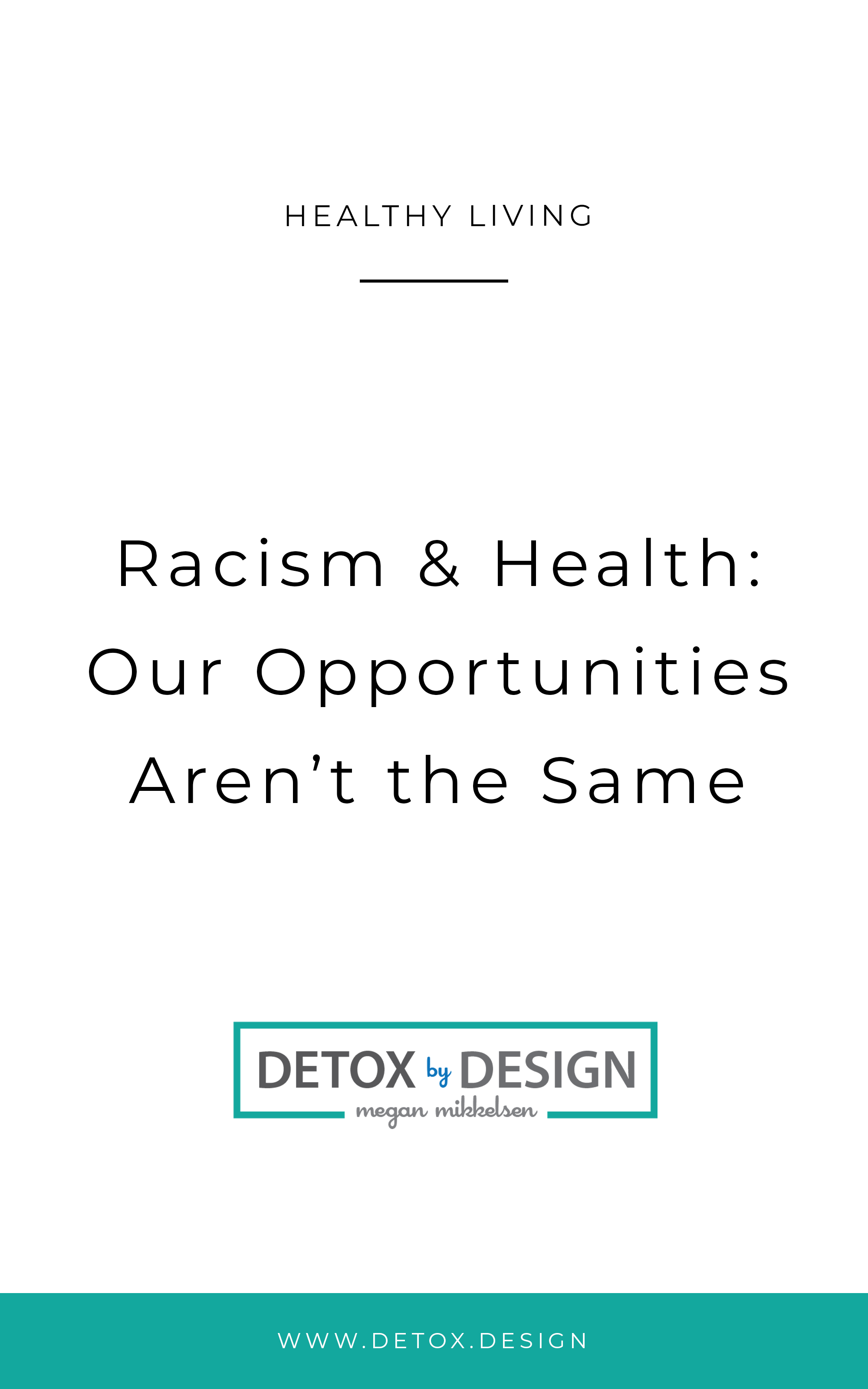Police brutality is just one part of the problem. Racism touches every part of our society. Since I focus on how the environment impacts our health, I wanted to share some information that some people may be unaware of.
Racism and health - our opportunities for health aren’t equal
I’ve worked in public health for a long time and in this field we often talk about inequalities in health. How certain races, ethnicities, and groups of people have higher rates of disease. For example, low-income communities often have higher rates of obesity. Many factors play into this, like these areas often have fewer parks and recreational areas for exercise, fewer grocery stores with a wide variety of healthy food, and the individuals who live in these communities often have longer commutes and have less time cook food at home or exercise, and often their local stores have less access to healthy food, you have heard of this referred to as a food dessert. These are just a few examples of what factors into these inequities and this is just one example of a difference in health between population groups.
When I went to graduate school and got my Master’s of Public Health, the research mostly pointed to SES, or socio-economic status. SES is the comparison of one’s social positioning or class compared to others and education level, income, and occupation are often the main measures of SES.
Researchers from Columbia University, Jo Phelan and Bruce Link investigated the question "Is Racism a Fundamental Cause of Inequalities in Health?".
The article mentions that the researchers had previously proposed that SES is fundamental to the causes of health inequalities and that has continued despite the advances and changes in disease, risks, and interventions over time. In their research, Phelan and Link found in their research that health inequalities between races continue because racism is a fundamental cause of racial differences in SES and because SES is a fundamental cause of health inequalities. They also found evidence that racism impacts health independent of SES, largely due to the differences in power, prestige, freedom, health care, and neighborhoods.
So the answer is yes, racism is fundamentally connect to health, disease, and mortality.
So how can we help?
Read, learn, advocate -
Advocate and stand up for others - vote, support BIPOC businesses, donate, etc. more resources here.
Pay attention to where you spend your money - Does the company make large political donations to candidates that go against your beliefs? Do they have diverse leadership teams, etc.
Practicing green living reduces our impact on the earth and helps everyone.



